Gabonese Food Dishes: Basic Overview
Common Ingredients
Common Cooking Methods
Courses
Meals
Key Taste
Eating Etiquette
Meal Presentation
Culinary Festivals
Influence and Fusion
Popular Types of Gabonese Dishes
-
Stews
Gabonese stews are a cornerstone of the culinary landscape, often featuring a rich blend of local meats, vegetables, and spices, slow-cooked to create deeply flavorful and comforting dishes.
-
Dessert
Gabonese desserts often utilize the natural sweetness of local fruits, incorporating them into simple yet delightful treats that provide a refreshing end to a meal.
Gabonese dishes are a combination of cooking traditions, practices, and foods associated with Gabon, a country on the west coast of Central Africa. It is notably influenced by delicacies of French, especially in larger cities where various French specialties are available.
In rural areas, staples such as cassava, rice, and yams dominate. Meats include chicken, fish, and bush meats like antelope, wild boar, and monkey, with sauces often enhancing dishes, including the hot red-pepper berbere paste.
The cuisine also features a variety of fruits such as bananas, papayas, guavas, mangoes, pineapples, coconuts, avocados, and peanuts, with plantains, tomatoes, corn, and eggplant being common vegetable ingredients.
Make sure to uncover more about the dishes of Gabon before figuring out your favorite pairings with some flavorful refreshments.
11 Most Popular Gabonese Dishes with Filters
Before you go and explore the specialties of Gabon, utilize the handy filter system to have a look at these dishes in alphabetical order, dish types, ingredients, tastes, cooking techniques, and worldwide popularity.
Get to know more about the specialties of Gabon by taking a look at these most popular, traditional, street, and fusion delicacies in the country:
Nyembwe
- Traditional
Nyembwe is a Gabonese dish consisting of palm butter or oil, called “moambe” or “nyembwe”.
While traditionally prepared with chicken, variations include beef, mutton, or fish, enriched with vegetables and spices to enhance its richness.
Thanks to a thick consistency, nyembwe goes well with starchy elements like rice, cassava, or plantain.
Nkumu Ofula
- Traditional
Nkumu ofula is a traditional Gabonese dish created using the nkumu leaves. They are known for their medicinal properties and are indigenous to Gabon.
This dish offers a unique salty flavor derived from local salt. It can be enriched with a variety of proteins such as fish, meat, shrimp, bacon, mushrooms, or even caterpillars.
The soup is typically served with rice, plantain, or cassava, which is great at soaking up the sauce.
Brochettes
- Street Food
Brochettes are simply grilled skewers in Gabon, where chicken often stars as the favored meat. This skewered delight features chicken marinated in a blend of garlic, cumin, parsley, and paprika.
Furthermore, the skewers are also accompanied by onions and bell peppers. Despite the simplicity of its ingredients, these brochettes offer a smoky bite from the grilling process.
Dongo Dongo
- Traditional
Dongo dongo is a thick and slimy stew from Gabon, combining fish and okra for a surprisingly delicious taste.
Often compared to the renowned Cajun-Creole Gumbo, dongo dongo can complement any starchy side, like fufu or rice, serving both as a sauce and a soup.
Enhanced with hot peppers, stir-fried onions, and garlic, dongo dongo offers a rich yet non-greasy flavor profile.
Poisson Salé
- Traditional
Poisson salé is a Gabonese stew of salted cod cooked with various kinds of veggies to enhance the flavors. With a savory broth, the stew is a favorite when served with many other starchy bases.
Also, rice is an excellent option for pairing with poisson salé. Plus, you can enjoy it with attiéké, a type of African fermented cassava semolina.
In terms of flavor, poisson salé offers a unique sourness coming from the cassava paste.
Bananes Au Four Croustillantes
- Traditional
Bananes au four croustillantes is a Gabonese dessert bringing together bananas and plantains. This simple culinary creation involves slicing bananas thinly and dipping them in a blend of orange juice with egg before coating them with breadcrumbs.
The slices are deep-fried to achieve a crispy texture before being baked in the oven for a brief period. Served with sour cream or a sprinkle of brown sugar for added sweetness, this dessert is a common treat in Gabon.
Boar with Odika
- Traditional
Boar with odika is a stew in Gabon, specifically created using the meat of boar. Marinated with herbs and spices, the dish is infused with odika, a type of grated kernel of mango.
Thanks to the special spice blend, the sauce has a chocolatey profile and a relatively thick consistency, For that, the stew is best when presented with starchy elements like cassava, plantain, and rice.
In Gabon, boar with odika is a common serving during wedding occasions along with festival events.
Chakery
- Traditional
Chakery is a Gabonese pudding dessert consisting of a refreshing blend of couscous, milk, yogurt, fresh fruits like pineapple, and sour cream.
The treat comes in many variations, including cinnamon and other spices to elevate the flavor. Chakery offers a sweet, smooth, and irresistibly tasty treat on summer days.
Beignets
- Fusion
Beignets are Gabonese desserts that were inspired by French cuisine. They are small, crispy pillow-liked pastries dusted with icing sugar, making them look like flaky white snow.
Served as a snack, beignets are often offered at the end of a meal.
Fufu
- Traditional
Fufu is a staple porridge in the cuisine of Gabon, Ghana, and other African nations. With a smooth, dense texture and mild flavor, the porridge complements well with savory dishes and stews.
The specialty primarily uses root crops like cassava, yams, or plantains to produce the desired texture.
Atanga
- Traditional
Atanga is a unique fruit from Gabon that is often boiled the before removing the outer skin to enjoy the flesh. Suitable to savor plain or seasoned with salt or sugar, these fruits are a popular snack among the Gabonese population.
Its texture is reminiscent of avocado, while the flavor brings a mild tartness similar to olives.
What Gabonese Dishes to Pair with Beverages?
Pairing your Gabonese dishes with the right drinks in Gabon can make a whole difference in elevating your Gabonese dishes. Consider some of these dishes and beverage ideas:
Have you ever tried any of these Gabonese suggestions? If you did, please leave your comment and share these dishes with others around you.
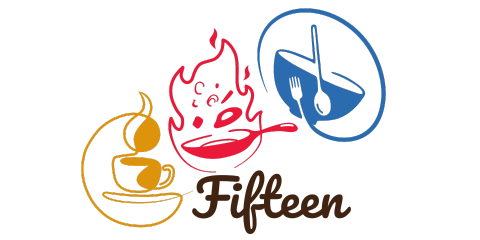


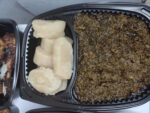
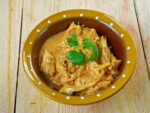
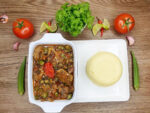



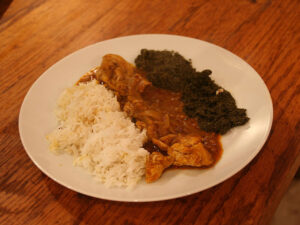
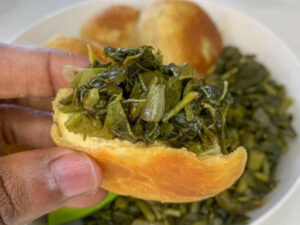

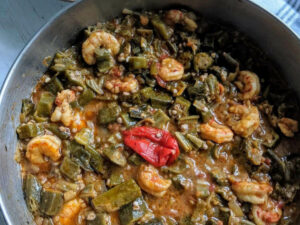
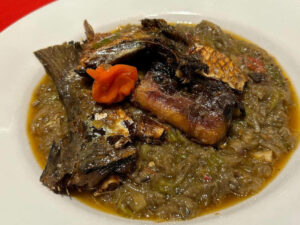
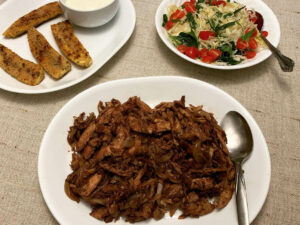
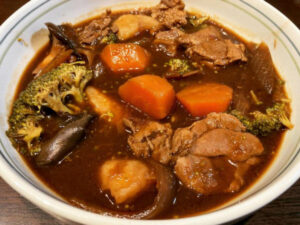
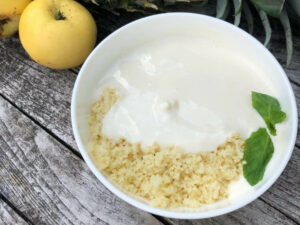


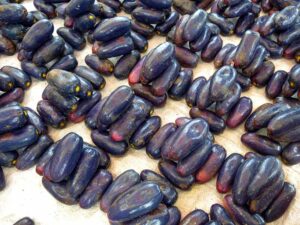
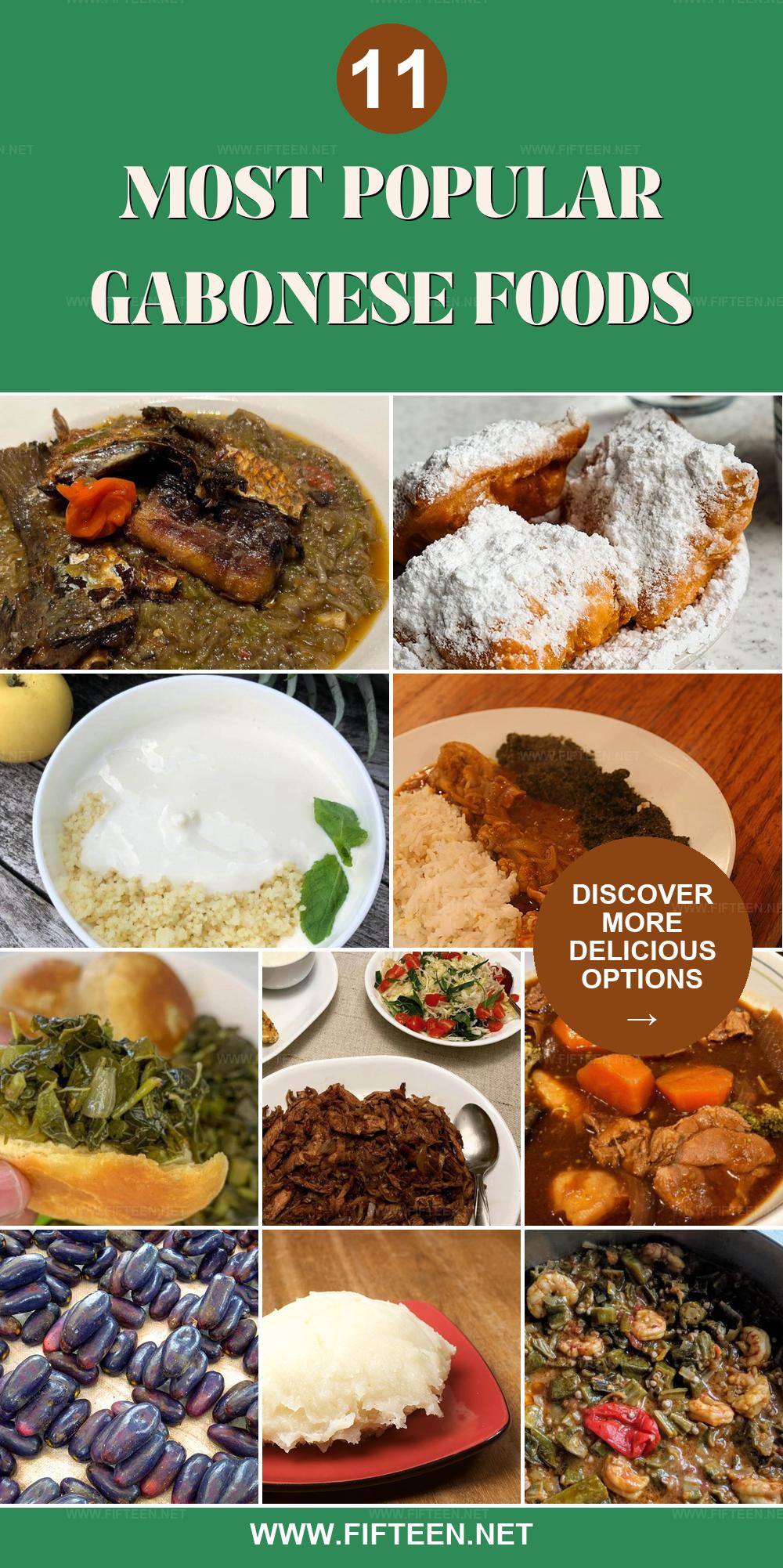
Jamie Scott
Editor in Chief, Senior Content Writer
Expertise
Home Cooking, Meal Planning, Recipe Development, Baking and Pastry, Food Editor, Cooking-video Maker, Western Food Evaluation Expert
Education
Le Cordon Bleu College of Culinary Arts
Local Community College, New York, NY
Jamie Scott is a skilled culinary expert and content creator specializing in Western cuisine. With over 15 years in the culinary field and formal training from Le Cordon Bleu, Paris, Jamie deeply understands how to blend nutrition with delicious flavors. His passion for cooking matches his commitment to making healthy eating accessible and enjoyable.
On Fifteen.net, Jamie brings a fresh perspective to classic dishes and beverages, offering readers insightful recipes, cooking tips, and a fresh view on meal planning that emphasizes taste, health, and simplicity.